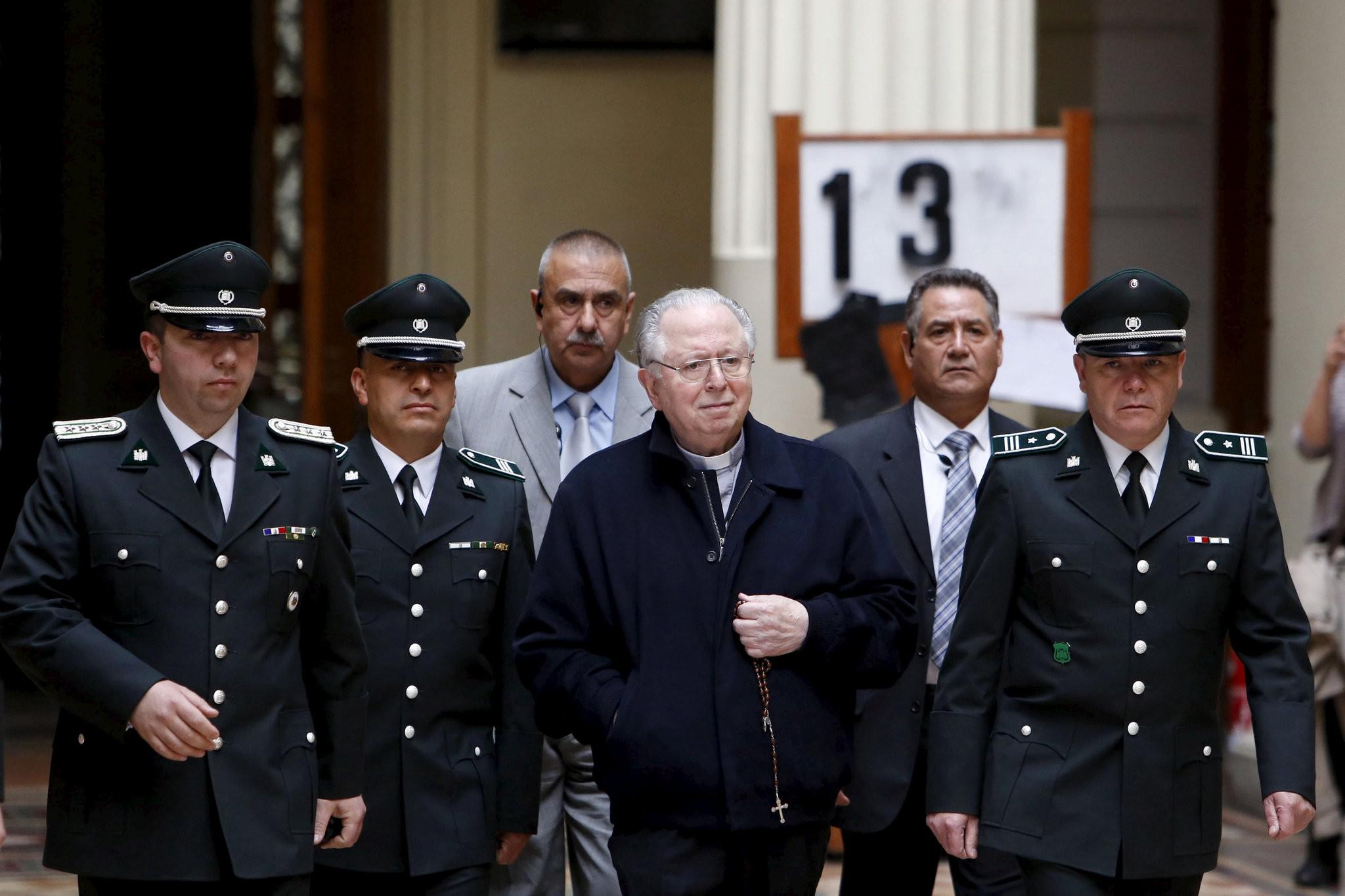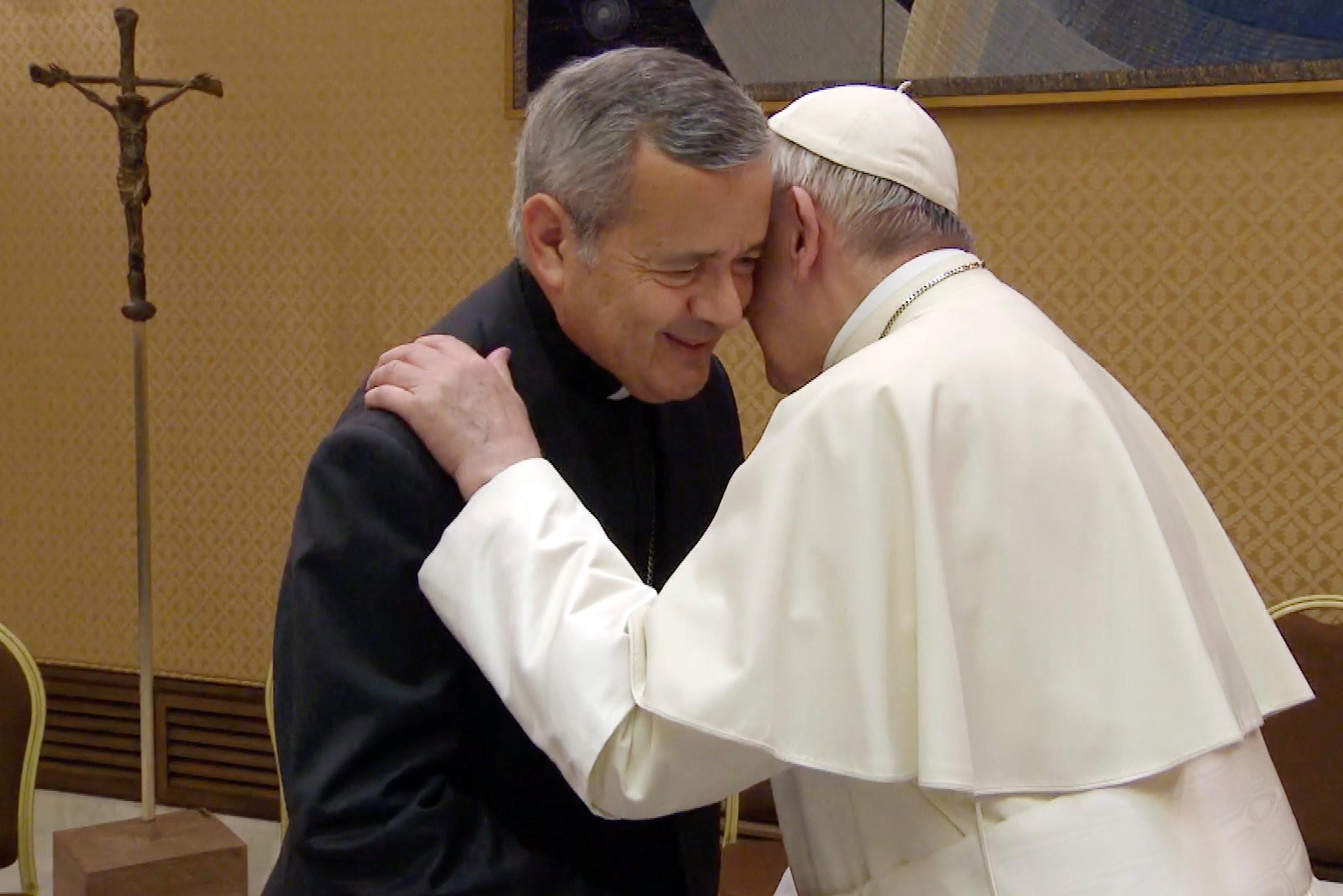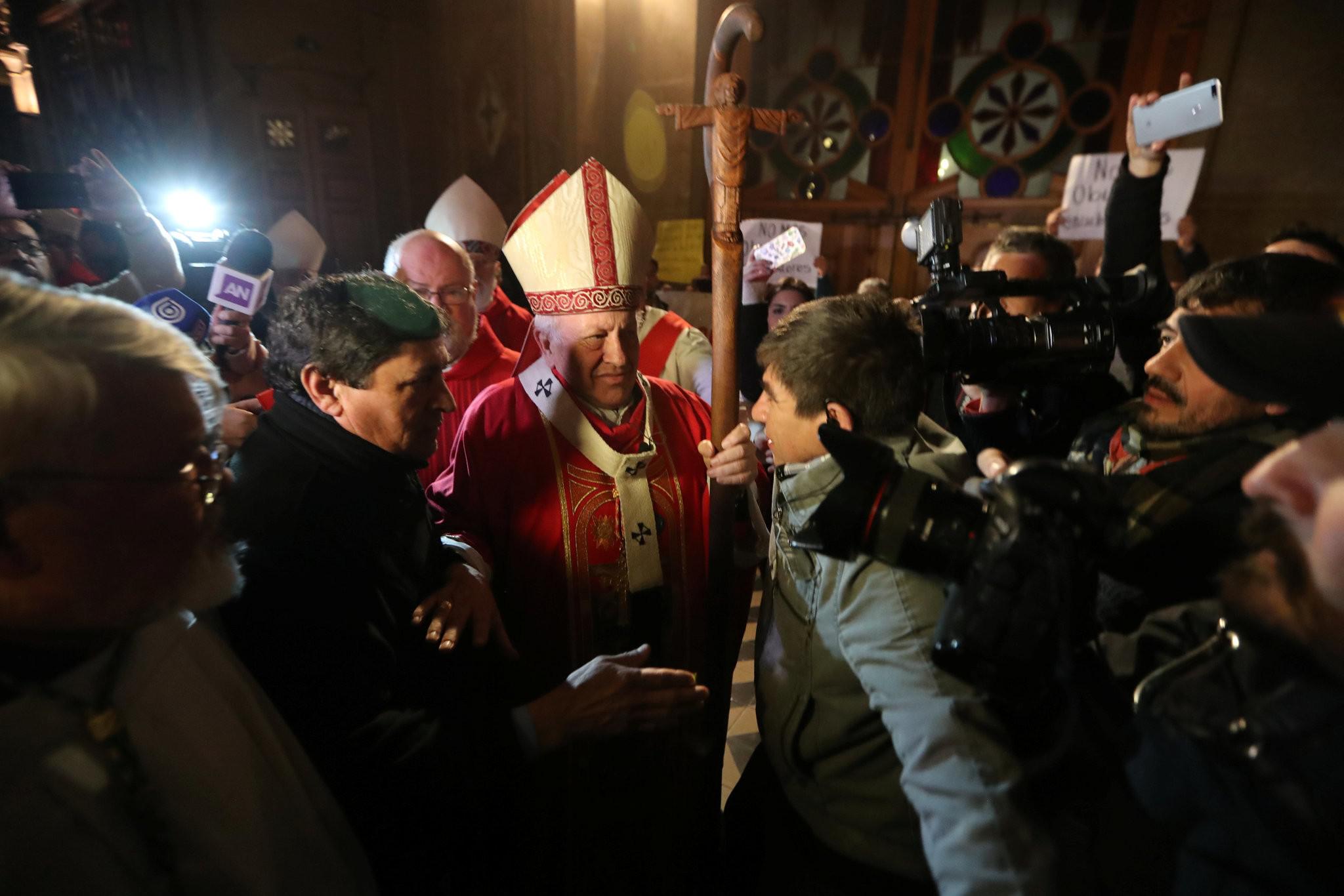|
Pope Defrocks Fernando Karadima, Priest at Center of Abuse Outrage in Chile
By Pascale Bonnefoy
Pope Francis has defrocked a once-prominent priest whose case has been at the center of public outrage about clerical sexual abuse and its concealment in Chile — a rare move that Vatican officials said showed his determination to tackle a scandal that has roiled the Catholic Church here and around the world. The priest, the Rev. Fernando Karadima, was found guilty of sexual offenses by the Vatican as long ago as 2011. But his case has proved particularly toxic for Francis, who long defended a bishop accused of covering it up, Juan Barros, including during a visit to Chile in January. A month later, following a storm of protest, Francis sent sex crimes investigators to the country, beginning an about-face that was to result in all 34 of the Roman Catholic bishops in Chile offering their resignations. “It is one more step in Pope Francis’ determined stance against abuse,” a Vatican spokesman, Greg Burke, said of the decision to defrock, which was announced on Friday. We were before a very serious case of putrefaction that had to be pulled out from its roots.” Mr. Burke described the move as “an exceptional measure,” justified because “Mr. Karadima’s serious offenses have caused exceptional damage to Chile.” The investigators, led by Charles Scicluna, archbishop of Malta and a veteran of the Vatican justice system, delivered a scathing 2,300-page report, concluding there was a “culture of abuse” and a pattern of inaction and concealment within the Chilean church. It accused church leaders of failing to investigate credible allegations — even destroying documents to conceal them — and transferring priests accused of abuses to other parishes. After receiving the report, the pope invited three of Mr. Karadima’s victims to the Vatican to hear their testimonies and ask for their pardon. In May, he summoned the entire Chilean Bishops’ Conference to Rome. All offered to resign. So far, Pope Francis has accepted seven resignations, including those of Bishop Barros, another bishop who was a disciple of Mr. Karadima, and others accused of sexual misconduct. Jaime Coiro, adjunct secretary general of the Bishops’ Conference, said that, “Causing a major fracture within the church is one of the main reasons for defrocking a clergy member, and in effect, the Karadima case generated a major fracture in the Chilean church, as is evident in the Scicluna report.” The defrocking took effect immediately, meaning that Mr. Karadima is no longer a priest, but he can still form part of the church as a lay member and, for example, take communion. Over the past two decades in Chile, at least 17 of the 44 members of the clergy condemned for abuses by the Vatican or criminal courts have been expelled from the church or dismissed from the clerical state, Mr. Coiro said. The pope’s decision comes nearly eight years after the Vatican first consigned Mr. Karadima, who catered to wealthy conservatives in Santiago, the Chilean capital, to a life of “prayer and penance,” and more than 15 years since some of his victims first reported the crimes. The revelations were initially met not with outrage at Mr. Karadima, but with disbelief and anger at his accusers. In 2011, a Chilean judge found that the allegations against him were “truthful and reliable” but dismissed the charges because a five-year statute of limitations had expired. The victims’ persistence and the shocking details of their abuse at the hands of a previously revered priest unleashed what seems to be an irreversible movement against clerical misconduct in Chile. Almost 170 members of the clergy are under criminal investigation for inflicting abuses or for covering them up, including seven bishops and the archbishop of Santiago, Cardinal Ricardo Ezzati, who will be questioned by prosecutors in early October on charges of covering up sex crimes. Over the past few months, public prosecutors have raided church offices in the capital and other cities and confiscated files with accusations of abuses that were never reported to the authorities. This trove of evidence has led to the opening of dozens of criminal investigations. The number of clerical abuse cases handled by the Public Prosecutor’s Office jumped from 36 in July to 119 in September, involving 178 victims. The number of men and women charged for those offenses rose to 167, from 68. In a public statement issued after the Vatican had notified Mr. Karadima of his defrocking, Cardinal Ezzati vowed to collaborate in “repairing all damage caused to victims and anyone who has suffered or is suffering because of this.” Cardinal Ezzati faced protests by churchgoers while offering Mass in July, as prosecutors picked up the pace of their inquiries, and he declined to preside over a symbolically important service to celebrate Chilean independence on Sept. 18. This month, the pope defrocked another prominent Chilean priest, the Rev. Cristián Precht, who in the 1970s was a director of the Catholic church’s Vicariate of Solidarity, the main human rights organization during the Pinochet dictatorship. In 2012, Mr. Precht was sentenced by the Vatican to a five-year suspension for “abusive behavior.” Now he is under a new investigation because of fresh allegations that surfaced after the suspension ended. “This is all tremendously important and I am grateful to the pope,” said Juan Carlos Cruz, one of Mr. Karadima’s victims. “I hope this is a signal of future drastic action against high-ranking church officials accused of abuses or complicity, not only in Chile, but also in other parts of the world.” Mr. Karadima, 88, has been living in a nursing home in an upscale district of Santiago paid for by the archbishop’s office. Now that he is no longer a priest, his conviction to a life of seclusion has been lifted and he may move about freely, but the church will no longer support him.
|
.
Any original material on these pages is copyright © BishopAccountability.org 2004. Reproduce freely with attribution.


